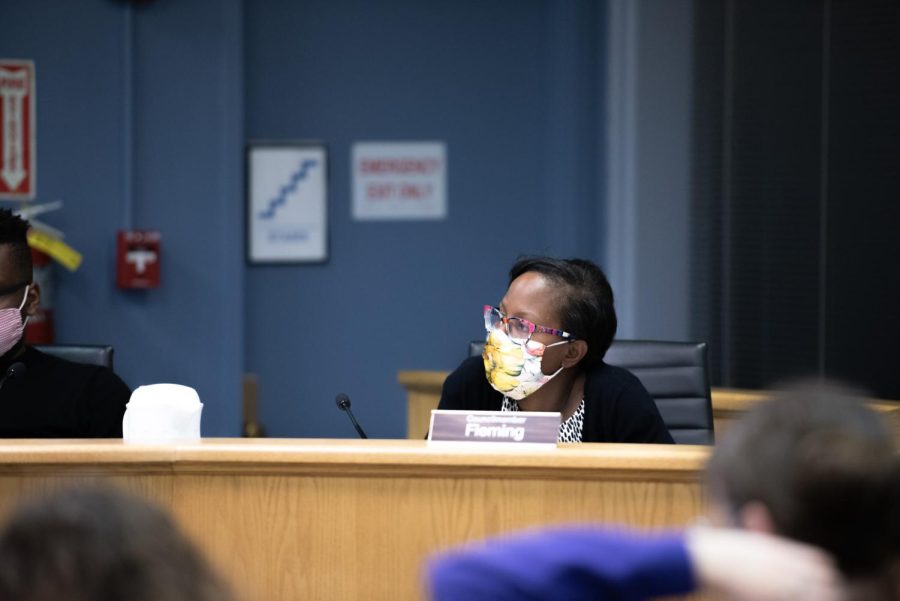One year in, Alternative Emergency Response Subcommittee works with state toward alternative 911 call responses
Daily file photo by Nick Francis
Ald. Cicely Fleming (9th), who sits on the Alternative Emergency Response Subcommittee. She said the committee will pivot to focus on creating a mental health space for respondents to arrive at, instead of the police station or emergency room.
November 2, 2021
One year after its establishment, the Alternative Emergency Response Subcommittee will begin working with the state to implement a plan for alternate responders to address behavioral- and mental-health related 911 calls.
The committee made progress on a plan replacing police officers with mental health crisis workers for responses to mental health emergency calls, Subcommittee Chair Ald. Cicely Fleming (9th) said. Right before submitting its proposal, however, the committee learned the state government had just submitted a similar proposal.
As a result, the program will be partially funded by the state, which has issued contracts to Turning Point Behavioral Health Care Center in Skokie and Trilogy Behavioral Healthcare in Chicago.
The committee is currently working with both organizations to make an alternative response system operational in Evanston. Meanwhile, Fleming said the committee plans to pivot to carry out community engagement and education programs related to the state’s alternative system.
Committee members will also continue to follow up on calls and responses as the program launches, in order to ensure residents consistently have positive experiences with alternative responses.
“(Committee members) are all committed to continuing this work to make sure this program gets launched,” Fleming said.
As Turning Point and Trilogy onboard and train staffers, Fleming proposed a new focus for the committee: creating a mental and behavioral health facility where alternative responders can bring residents in crisis.
It’s not enough to change the way that calls are answered, Fleming said, unless those in need of mental and behavioral health services end up in a designated safe space, as a result of their call.
“Taking (callers) to the police is not what we wanted as a community,” Fleming said. “Taking them to the emergency room does not provide the support they need.”
To ensure this, Fleming said the committee will need significantly more funding than its current budget of $200,000, which is also earmarked in next year’s budget. She said the increase has been long anticipated.
The group had discussed hiring two full-time responders but now thinks at least four would be needed to run a safe space, even if it wasn’t initially open around the clock.
Lack of funding would prevent any residents from being hired as unionized alternative responders, Fleming said, on top of the limitations of the state’s proposal. She and Ald. Bobby Burns (5th) discussed the idea of training some residents as peer counselors to work alongside contracted staff at a future facility.
Part of the original intent of the committee was to restructure 911 responses to be handled internally by the city, Burns said.
Any formal request for increased subcommittee funding will be put in writing at a later City Council meeting. As the city prepares to finalize its 2022 budget, members of the city’s Mental Health Task Force are also calling for more funding to be allocated towards mental health programming for the coming year.
The task force supports the subcommittee’s idea of a safe facility, according to Patti Capouch, task force member and executive director of Impact Behavioral Health Partners — an Evanston-based organization dedicated to helping adults with mental illnesses find affordable housing.
Task force member Cindy Castro said the city’s health department surveys have consistently turned up resident requests for more services. The city’s existing mental health services are being stretched too thin as of late, she said.
“We all need more,” Castro said. “And we cannot continue to minimize the urgency of these services.”
Jorja Siemons contributed reporting.
Email: [email protected]
Twitter: @ilana_arougheti
Related Stories:
— Evanston supports underserved pockets of mental health services












